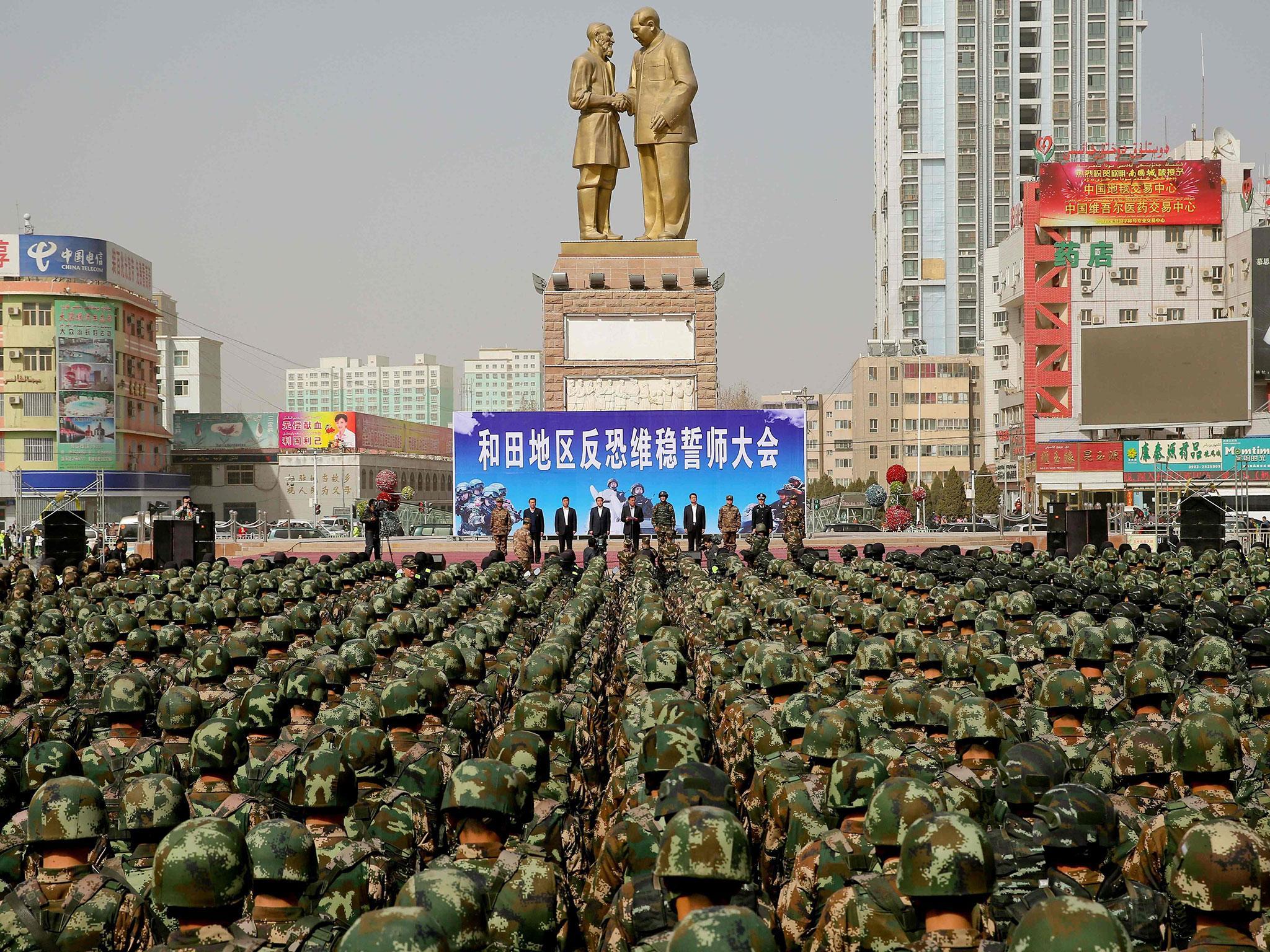Chinese official demoted 'for refusing to smoke in front of religious figures' in Muslim province
Act is ruled to be a sign of weakness in fight against religious extremism

Your support helps us to tell the story
From reproductive rights to climate change to Big Tech, The Independent is on the ground when the story is developing. Whether it's investigating the financials of Elon Musk's pro-Trump PAC or producing our latest documentary, 'The A Word', which shines a light on the American women fighting for reproductive rights, we know how important it is to parse out the facts from the messaging.
At such a critical moment in US history, we need reporters on the ground. Your donation allows us to keep sending journalists to speak to both sides of the story.
The Independent is trusted by Americans across the entire political spectrum. And unlike many other quality news outlets, we choose not to lock Americans out of our reporting and analysis with paywalls. We believe quality journalism should be available to everyone, paid for by those who can afford it.
Your support makes all the difference.A Chinese government official has reportedly been demoted after refusing to smoke in front of religious people.
Jelil Matniyaz, the Communist Party chief of a village in the semi-autonomous, Muslim-majority province of Xinjiang in north-west China, had his title changed from “senior staff member” to “staff member”.
This was changed because of his “infirm political stands…and for being afraid to smoke in front of religious figures”, according to the state run Global Times newspaper.
"Smoking is a personal choice, and religious and ordinary people should respect each other, but his behaviour of 'not daring' to smoke conforms with extreme religious thought in Xinjiang," said an unnamed local official.
"As a Party chief, he should lead the fight against extreme religious thought, otherwise, he would fail to confront the threat of extreme regional forces," the official added.
According to local customs, it is considered wrong to smoke in front of older people or those who are religious. Some religious people attempt to force other citizens to follow this tradition. Those that do so are often accused of not being committed to secularisation.
Government officials are currently attempting to clamp down on religious extremism in Xinjiang, which is home to a number of different ethnic and religious groups, including the Muslim community known as the Uighurs.
In March, the provincial government issued new rules that aimed to clamp down on “extremism” by banning the wearing of veils and growing of “abnormal” beards.
There have been a number of violent attacks in the province in recent years, which China blames on the East Turkistan Islamic Movement (ETIM).
The Uighur ethnic group in Xinjiang wants greater autonomy from China but has been met with opposition from the Beijing government.
Join our commenting forum
Join thought-provoking conversations, follow other Independent readers and see their replies
Comments